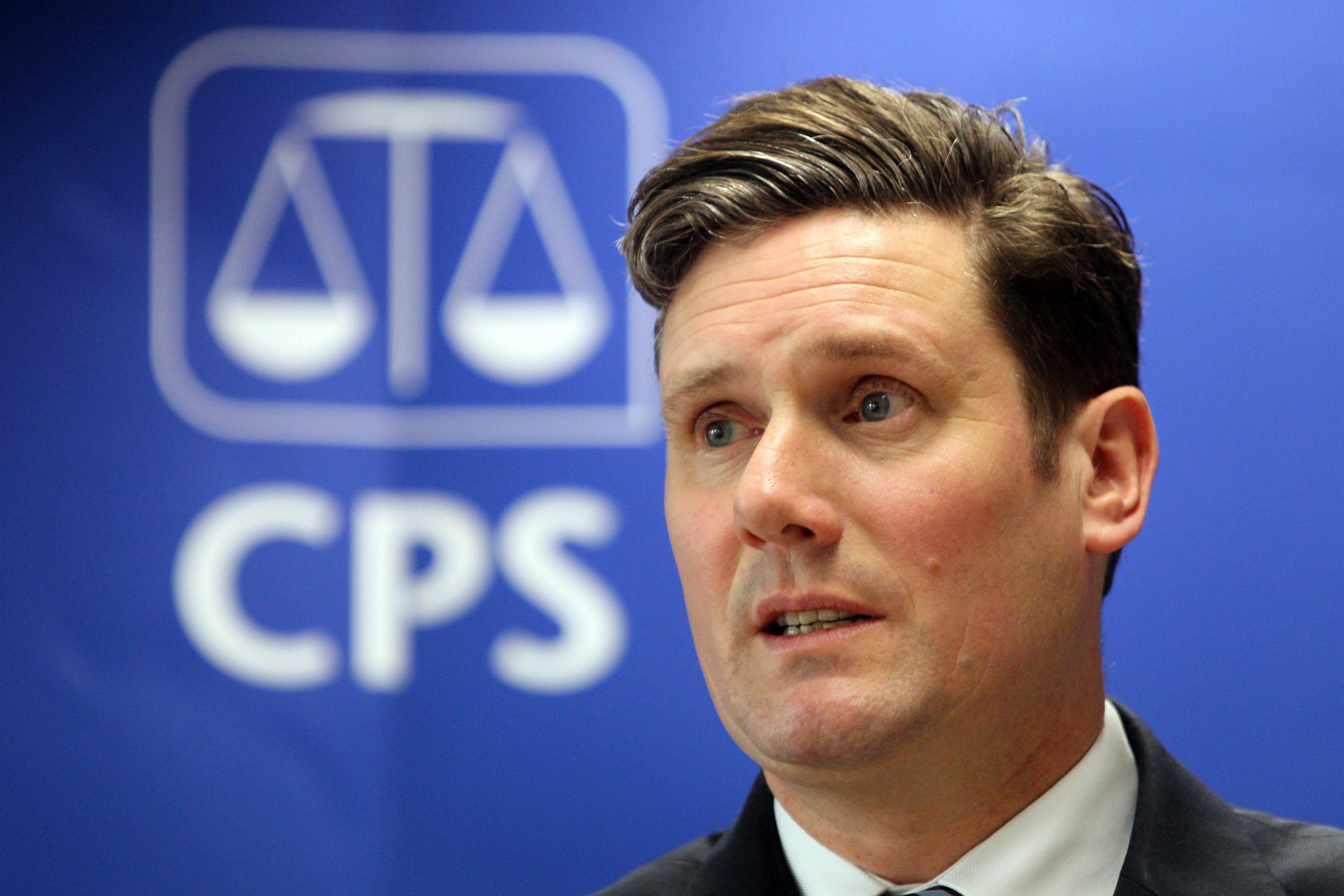Rape convictions rose between Keir Starmer becoming CPS boss and him leaving
The number of rape convictions, prosecutions, and the proportion of prosecutions ending in convictions all rose between 2008 and March 2014.

Your support helps us to tell the story
From reproductive rights to climate change to Big Tech, The Independent is on the ground when the story is developing. Whether it's investigating the financials of Elon Musk's pro-Trump PAC or producing our latest documentary, 'The A Word', which shines a light on the American women fighting for reproductive rights, we know how important it is to parse out the facts from the messaging.
At such a critical moment in US history, we need reporters on the ground. Your donation allows us to keep sending journalists to speak to both sides of the story.
The Independent is trusted by Americans across the entire political spectrum. And unlike many other quality news outlets, we choose not to lock Americans out of our reporting and analysis with paywalls. We believe quality journalism should be available to everyone, paid for by those who can afford it.
Your support makes all the difference.During Prime Minister’s Questions in the House of Commons, Rishi Sunak said rape convictions fell during Labour leader Sir Keir Starmer’s tenure in charge of the Crown Prosecution Service (CPS).
Mr Sunak, the Prime Minister and leader of the Conservative Party, said on Wednesday March 6: “The right honourable and learned gentleman raises his time at the Crown Prosecution Service, but he has not acknowledged that, under his tenure, rape convictions actually dropped.”
Evaluation: Missing context
According to CPS data, the number of rape convictions, prosecutions, and the proportion of prosecutions ending in convictions were all higher in the year ending March 2014, when Sir Keir left the organisation, than they were in both 2008 – the year he was appointed – and the year before that.
Downing Street pointed to data showing convictions falling between the fourth quarter of the year ending March 2011, two years after Sir Keir took charge, and the final quarter of his tenure in 2013, as justification for the Prime Minister’s statement.
The facts
Sir Keir, who qualified as a barrister in 1987, spent five years as Director of Public Prosecutions (DPP) at the CPS from November 2008 to October 2013.
The Crown Prosecution Service prosecutes criminal cases that have been investigated by the police and other organisations in England and Wales. It makes prosecuting decisions independently of the police and Government.
Figures provided to the PA news agency by the CPS show that in the year ending March 2008 – the year before Sir Keir became DPP – the number of convictions in “rape-flagged” prosecutions was 2,021.
By the year ending March 2014, which includes the last seven months before Sir Keir left the DPP, that had risen to 2,348.
The number of prosecutions in rape-flagged cases also rose in that period from 3,503 to 3,891, while the percentage of rape-flagged prosecutions ending in a conviction rose from 57.7% to 60.3%.
Within the data there are periods of decrease, for instance both rape convictions and prosecutions were highest in the year ending March 2011, with 2,467 convicted and 4,211 prosecuted.
It is this data, on a quarterly basis, which Downing Street said formed the basis of the Prime Minister’s comment.
During Sir Keir’s time in charge, rape convictions peaked at 655 in the fourth quarter of the year ending March 2011. In the third quarter of the year ending March 2014 – his last as DPP – there were 556 convictions.
The data for “rape-flagged” cases likely contains some convictions which were not for rape. These flags are assigned when cases are passed from the police to the CPS, and remain even if a decision is made to pursue different charges in relation to the alleged crime.
The CPS explained: “CPS data on successful rape prosecutions include not only cases resulting in a conviction for rape but also cases initially flagged as rape, where a conviction was obtained for an alternative or lesser offence.”
Several other factors, including funding, could also influence conviction rates.
Links
Hansard of PMQs (archived)
Keir Starmer’s profile from the Labour Party (archived)
Sky News story on Starmer Keir Starmer stepping down as DPP (archived)
Crown Prosecution Service profile (archived)
CPS Violence against Women and Girls Crime Report, 2014 (archived)e
Quarterly data on convictions (archived)
Channel 4 Fact Check on CPS funding (archived)